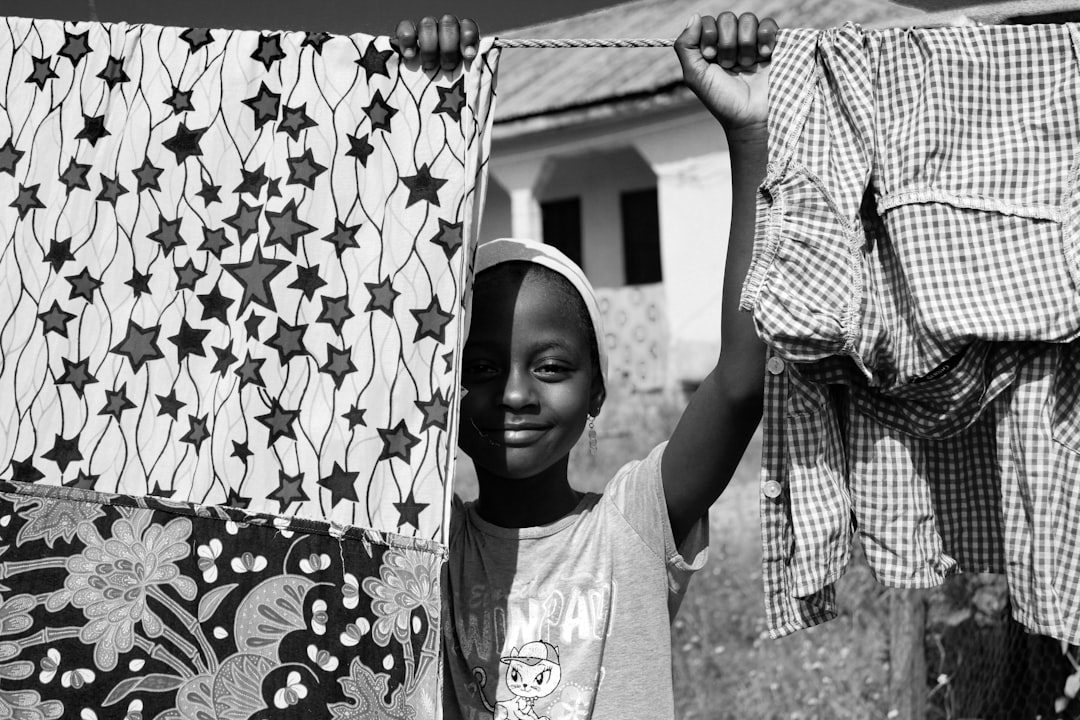Understanding Destructive Behavior in ADHD Kids

Attention-deficit/hyperactivity disorder (ADHD) is a neurodevelopmental disorder that affects both children and adults. It is characterized by symptoms such as inattention, hyperactivity, and impulsivity. While these symptoms can be challenging on their own, some children with ADHD also exhibit destructive behavior. This destructive behavior can manifest in various ways, including physical aggression, property damage, and self-harm. Addressing and managing destructive behavior in ADHD kids is crucial for their well-being and the well-being of those around them.
Key Takeaways
- Destructive behavior is a common issue among ADHD kids that can negatively impact their lives and families.
- Root causes of destructive behavior in ADHD kids can include impulsivity, hyperactivity, and difficulty with emotional regulation.
- Signs and symptoms of destructive behavior in ADHD kids may include aggression, tantrums, and property damage.
- Managing destructive behavior in ADHD kids can involve strategies such as positive reinforcement, consistent routines, and clear boundaries.
- Medication and therapy options may also be helpful in addressing destructive behavior in ADHD kids, but lifestyle changes and behavioral interventions are also important for long-term success.
Understanding the Root Causes of Destructive Behavior in ADHD Kids
ADHD is believed to have both genetic and environmental factors that contribute to its development. Research suggests that there is a strong genetic component to ADHD, with studies showing that it tends to run in families. Additionally, environmental factors such as prenatal exposure to tobacco smoke or alcohol, low birth weight, and exposure to lead or other toxins may increase the risk of developing ADHD.
Neurologically, individuals with ADHD have differences in brain structure and function compared to those without the disorder. These differences can affect areas of the brain responsible for impulse control and emotional regulation, leading to impulsive and aggressive behavior. Furthermore, stress and trauma can exacerbate these neurological differences and contribute to destructive behavior in ADHD kids.
Identifying the Signs and Symptoms of Destructive Behavior in ADHD Kids
Destructive behavior in ADHD kids can take various forms. Physical aggression, such as hitting, biting, or throwing objects, is a common manifestation of destructive behavior. Property damage, such as breaking or destroying objects, may also occur. Additionally, some children with ADHD engage in self-harm behaviors, such as cutting or hitting themselves.
It’s important to note that destructive behavior often co-occurs with other symptoms of ADHD, such as hyperactivity and impulsivity. These symptoms can further contribute to the child’s difficulty in controlling their behavior and emotions. Early detection and intervention are crucial for addressing destructive behavior in ADHD kids and preventing further negative consequences.
The Impact of Destructive Behavior on the Lives of ADHD Kids and Their Families
Destructive behavior in ADHD kids can have significant negative consequences on their academic, social, and emotional functioning. In school, these behaviors can disrupt the learning environment and impede the child’s ability to focus and engage in classroom activities. This can lead to academic difficulties and a negative impact on their educational progress.
Socially, destructive behavior can strain relationships with peers, teachers, and family members. The child may struggle to make and maintain friendships due to their impulsive and aggressive behavior. This can lead to feelings of isolation and low self-esteem.
The impact of destructive behavior is not limited to the child with ADHD; it also affects their family. Parents and caregivers may experience stress, frustration, and feelings of helplessness when trying to manage their child’s behavior. Siblings may also be affected by the disruptive and aggressive behavior, leading to tension within the family unit.
Seeking support and resources is essential for families affected by ADHD and destructive behavior. Support groups, therapy, and educational resources can provide guidance and strategies for managing these challenges.
Strategies for Managing Destructive Behavior in ADHD Kids
Managing destructive behavior in ADHD kids requires a multi-faceted approach that addresses both the underlying ADHD symptoms and the specific behaviors that are causing harm. Behavioral interventions are often used to promote positive behavior and reduce destructive tendencies. These interventions may include positive reinforcement, where desired behaviors are rewarded, and behavior contracts that outline expectations and consequences.
Parenting strategies play a crucial role in managing destructive behavior in ADHD kids. Setting clear expectations, providing structure and routine, and using consistent consequences for both positive and negative behaviors can help establish boundaries and promote self-control.
In the classroom, accommodations and support can be provided to ADHD kids with destructive behavior. This may include preferential seating, additional breaks, and individualized behavior plans. Collaboration between parents, teachers, and other professionals is essential to ensure a consistent approach to managing behavior across different settings.
Medication and Therapy Options for ADHD Kids with Destructive Behavior

Medication is often used as part of the treatment plan for ADHD, including when destructive behavior is present. Stimulant medications, such as methylphenidate and amphetamines, are commonly prescribed to help manage ADHD symptoms. These medications work by increasing the levels of certain neurotransmitters in the brain, improving focus and impulse control.
Non-stimulant medications, such as atomoxetine and guanfacine, may also be used to manage ADHD symptoms and reduce destructive behavior. These medications work differently than stimulants but can still be effective in improving attention and reducing impulsivity.
Therapy is another important component of treatment for ADHD kids with destructive behavior. Cognitive-behavioral therapy (CBT) can help children develop coping strategies and improve their self-control. Family therapy may also be beneficial in addressing family dynamics and improving communication.
It’s important to work closely with a healthcare provider to determine the best treatment approach for each individual child. Medication and therapy should be used in conjunction with behavioral interventions and support from parents, teachers, and other professionals.
How to Fix ADHD: Tips and Techniques for Parents and Caregivers
It’s important to note that ADHD cannot be “fixed” or cured. It is a chronic condition that requires ongoing management. However, there are strategies that parents and caregivers can use to help manage ADHD symptoms and promote positive behavior in ADHD kids.
One important tip is to establish a routine and structure in the child’s daily life. This can help provide predictability and reduce impulsivity. Setting clear expectations and using visual schedules or reminders can also be helpful.
Another tip is to break tasks or activities into smaller, more manageable steps. ADHD kids may struggle with organization and planning, so providing guidance and support can help them stay on track.
Additionally, using positive reinforcement and rewards can be effective in promoting desired behaviors. Praising and acknowledging the child’s efforts and progress can boost their self-esteem and motivation.
How to Improve ADHD: Lifestyle Changes and Behavioral Interventions
In addition to medication and therapy, lifestyle changes can also play a role in improving ADHD symptoms. Regular exercise has been shown to have a positive impact on attention and impulse control. Encouraging physical activity, such as sports or outdoor play, can help reduce hyperactivity and promote better focus.
A healthy diet is also important for managing ADHD symptoms. Avoiding foods high in sugar and artificial additives may help reduce hyperactivity and improve overall behavior. A diet rich in fruits, vegetables, whole grains, and lean proteins can provide the necessary nutrients for optimal brain function.
Behavioral interventions such as mindfulness and social skills training can also be beneficial for ADHD kids. Mindfulness exercises can help improve attention and self-regulation, while social skills training can enhance interpersonal relationships and reduce conflict.
Taking a holistic approach to managing ADHD and destructive behavior is essential. This includes addressing all aspects of the child’s life, including their physical health, emotional well-being, and social interactions.
How to Cure ADHD: The Latest Research and Treatment Approaches
While there is currently no cure for ADHD, ongoing research is being conducted to better understand the disorder and develop new treatment approaches. Advances in neuroscience have provided valuable insights into the underlying mechanisms of ADHD, leading to the development of targeted interventions.
Current research focuses on areas such as neurofeedback, which uses real-time feedback on brain activity to train individuals to regulate their own brain function. Other areas of research include the use of transcranial magnetic stimulation (TMS) and neurostimulation techniques to modulate brain activity and improve symptoms.
It’s important to understand that ADHD is a chronic condition that requires ongoing management. However, participating in research studies and clinical trials can contribute to the advancement of our understanding of ADHD and its treatment options.
Helping ADHD Kids Overcome Destructive Behavior and Thrive in Life
Addressing and managing destructive behavior in ADHD kids is crucial for their well-being and the well-being of those around them. Understanding the root causes of destructive behavior, identifying the signs and symptoms, and seeking support and resources are all important steps in helping these children overcome their challenges.
Strategies for managing destructive behavior include behavioral interventions, parenting strategies, and classroom accommodations. Medication and therapy options can also be effective in reducing ADHD symptoms and promoting positive behavior.
While there is currently no cure for ADHD, ongoing research is being conducted to improve our understanding of the disorder and develop new treatment approaches. It’s important to approach ADHD with a holistic mindset, considering lifestyle changes, behavioral interventions, and ongoing support.
With early intervention, appropriate treatment, and support from parents, caregivers, and professionals, ADHD kids with destructive behavior can thrive in life and reach their full potential.
If you’re interested in understanding destructive behavior in ADHD kids, you may find this article on “How to Start Digital” quite informative. This article explores various strategies and techniques to help parents and caregivers effectively manage and address destructive behavior in children with ADHD. From creating structured routines to implementing positive reinforcement, this resource offers valuable insights and practical tips. Check out the article here to gain a deeper understanding of how to support children with ADHD and promote positive behavior.
FAQs
What is ADHD?
ADHD stands for Attention Deficit Hyperactivity Disorder. It is a neurodevelopmental disorder that affects a person’s ability to focus, pay attention, and control impulsive behaviors.
What is destructive behavior in ADHD kids?
Destructive behavior in ADHD kids refers to behaviors that are harmful to themselves or others. This can include physical aggression, verbal aggression, destruction of property, and self-injury.
Why do ADHD kids exhibit destructive behavior?
ADHD kids may exhibit destructive behavior due to difficulties with impulse control, emotional regulation, and frustration tolerance. They may also have difficulty understanding and following rules and may struggle with social skills.
How can parents and caregivers help manage destructive behavior in ADHD kids?
Parents and caregivers can help manage destructive behavior in ADHD kids by setting clear and consistent rules and consequences, providing positive reinforcement for good behavior, and seeking professional help if needed. They can also work with the child’s school to develop a behavior plan and provide support and resources for the child and family.
What are some effective treatments for ADHD?
Effective treatments for ADHD include medication, behavioral therapy, and parent training. A combination of these treatments may be most effective for managing symptoms and improving overall functioning. It is important to work with a healthcare professional to determine the best treatment plan for each individual.




